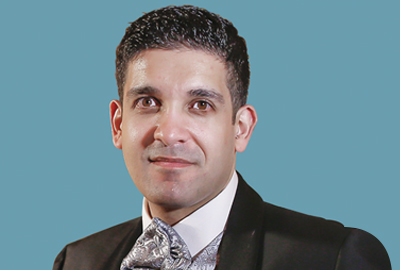Workplace harassment, our duty as lawyers

Khaled Shivji shares his take on how lawyers should lead efforts to tackle harassment at work, defy dated notions and reform practices within and beyond the organisation.
I have been awestruck by the #MeToo movement and the positive change it has brought about to enable women to publically call out sexism in the workplace and everyday life. In my opinion, lawyers must continue to lead efforts to support victims of harassment, challenge outdated attitudes and to reform workplace practices.
In the workplace, women often suffer the brunt of harassment. It destroys careers and causes millions of hours of lost productivity. British parliamentarian and lawyer, Harriett Harman QC stated, “The vast majority of men would not dream of abusing their power to force themselves on young women. But some will and hitherto they’ve had impunity”[1].
In 2017, the Harvard Business Review cited that that 85 per cent of women in the US reported they had been harassed at work and that 80 per cent of women who had been harassed left their jobs within two years[2]. A US study cited that sexual harassment within the workplace costs each Fortune 500 company USD6.7m per year due to absenteeism, lower productivity and high staff turnover[3].
Therefore, as lawyers, there is much that we can do to combat harassment within the workplace. Counsel must actively work with their human resources department to design and implement whistle-blowing procedures which encourage employees to anonymously report harassment. Complaints must be independently handled to avoid the risk of backlash or retribution by a perpetrator, particularly someone in a position of authority.
Counsel must build trusted relationships with their board and colleagues by being approachable, helpful, engaging and visible. Directors need to have a confidential sounding board which they can turn to for counsel on how to investigate allegations of harassment. Similarly, it is essential for counsel to educate their colleagues about anti-harassment policies and organise programmes to educate employees about their workplace rights.
Counsel must be given free rein to attend and drop-in at any company meetings, whether held onsite or externally. This demonstrates that the guise of a confidential meeting may never be used as a cloak behind which harassment can be facilitated.
My other recommendation is that the legal industry must diversify. Harassment is less likely to prevail within industries where there are mixed teams of women and men in positions of authority and power. However, the rate at which women have risen through the legal ranks has been woefully slow. Women are as ambitious as men and in my opinion, women make better leaders. A woman’s lifestyle choices should never preclude her from re-entering the workforce. However, in some cases rather than rising to the rank of partner or general counsel relatively later compared with men, women find themselves knocked out of the race entirely.
For example, in the UK, since 1993, women have outnumbered (and outperformed) men in British law schools. Yet, twenty years later, in 2014, women occupied less than 25 per cent of partner-level positions at top British law firms[4].
Change may be happening, but with the emergence of the #MeToo movement and its rapid proliferation thanks to social media, this is the time for the legal industry to lead the charge. The industry must stamp out harassment and diversify so that the brightest women and men can enter the profession, create safe working cultures and provide the best service to our clients. Those who support this change will find themselves on the right side of history.
[1] https://www.theguardian.com/commentisfree/2018/feb/21/women-have-changed-the-mood-now-we-need-to-change-policy
[2] https://hbr.org/2017/11/the-insidious-economic-impact-of-sexual-harassment
[3] http://www.gauveylaw.com/resources/elkridge-maryland-sexual-discrimination-defense-attorney/
[4] https://www.lawcareers.net/Information/Features/06062017-Feminist-lawyers-the-fight-for-gender-equality-in-the-legal-profession
























































































































